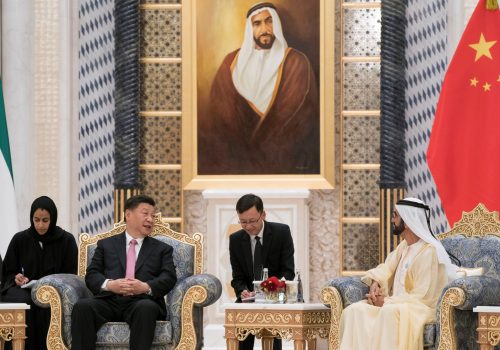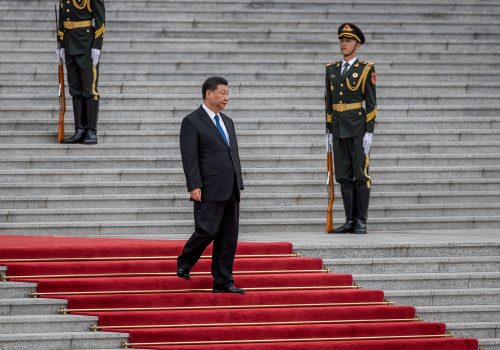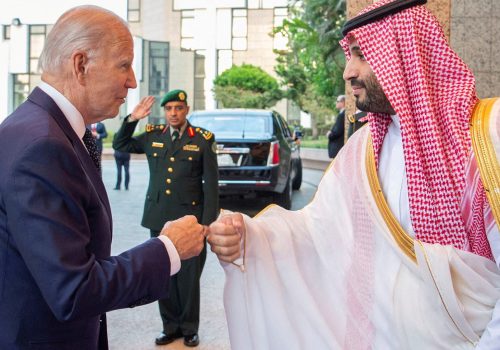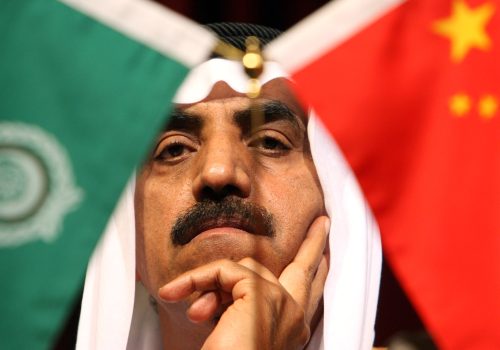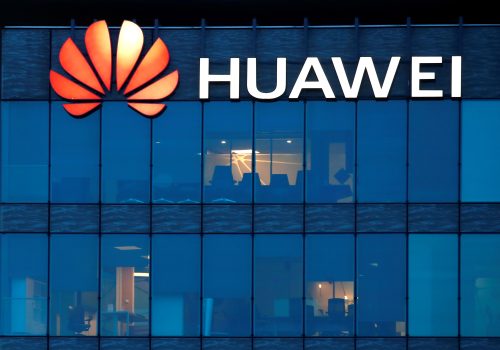Managing US-China Competition: The View from Singapore
SUBSCRIBE TO THE CHINA-MENA PODCAST ON THE APP OF YOUR CHOICE
Key takeaways
- The influence of US-China Competition in the SEA region
- Comparison between the Gulf region and the SEA region
- The China-Iran relationship in geopolitics
- The role of extra-national powers in the power balance in East Asia and SEA regions
- Advice and recommendations to Gulf Countries
Timestamps
[00:00] Introduction
[02:22] Influence in Southeast Asia
[09:30] The Gulf region vs Southeast Asia
[19:47] China and Iran relations
[25:36] Extra-national powers’ role in security
[28:58] North Korea distrusts China
[30:21] Binary of great power combination
[33:17] US is a key in the economic power in SEA
[39:52] Advice to the Gulf countries
[42:54] Conclusion
In this episode
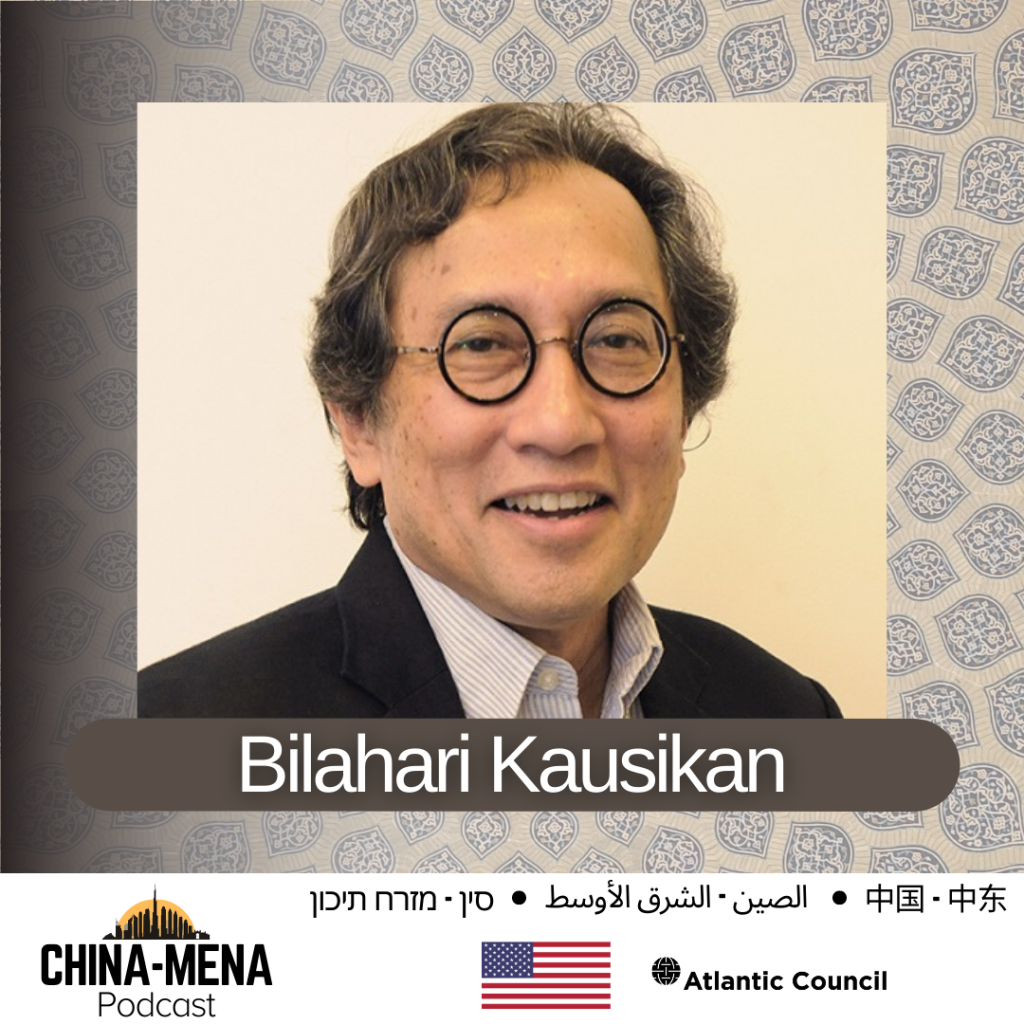
Ambassador Bilahari Kausikan
Chairman, Middle East Institute
National University of Singapore
Former Ambassador-at-Large and Permanent Secretary
Ministry of Foreign Affairs, Singapore
Ambassador Bilahari Kausikan is a former Ambassador-at-Large in the Ministry of Foreign Affairs of Singapore. Between 2001 and May 2013, he was first the Second Permanent Secretary and then Permanent Secretary of the Ministry of Foreign Affairs.
During his career, he has served in a variety of appointments, including as Singapore’s Permanent Representative to the United Nations in New York and as Ambassador to the Russian Federation. He studied at Raffles Institution, the University of Singapore, and Columbia University in New York.
In a speech on May 26, Secretary of State Antony Blinken outlined the Biden administration’s policy toward China, which he characterized as the only nation with the will to alter the international order while relying on an increasing amount of economic, diplomatic, military, and technological power to do so. According to Secretary Blinken, the US will concentrate on influencing Beijing’s strategic environment to further its goals. In this period of strategic rivalry, the US will use the three-word strategy of investing, aligning, and competing. The Indo-Pacific region has been designated as the US’s top priority theater, while the Middle East and North Africa are significant regions where the rivalry will play out.
In this podcast, Ambassador Bilahari Kausikan, Chairman, Middle East Institute, National University of Singapore, and former Ambassador-at-Large, Ministry of Foreign Affairs of Singapore, joins us to discuss the influence of the US-China competition in the Southeast Asia (SEA) region, the different perspectives between the Gulf and Southeast Asia in this geopolitical competition, and how SEA welcomes these extra-national actors –the US and China– within the region as they help maintain the balance of power and economic growth. Lastly, Ambassador Kausikan provides some advice to Gulf countries regarding US-China geopolitics.
Hosted by
“China has good relations with everybody in the MENA region, but it is not a sustainable position over the long run, and the Chinese know it and are not quite sure what to do about it”
About the China-MENA podcast
The China-MENA podcast features conversations with academics, think-tankers, and regional specialists on Chinese Influence in the Middle East and informs US and MENA audiences in the policy and business communities about the nature of China’s outreach to the region.
At a time when China’s global footprint is getting deeper and deeper, it has never been more important to understand its foreign policy and the Middle East is one of the world’s most consequential regions: home to major religions, diverse cultural and social heritage, central to global energy markets, and of course, geopolitics, linking people and markets in Asia, Africa and Europe. This show will help you understand what China is doing in the region, and how the region is engaging with China as an increasingly important external power.
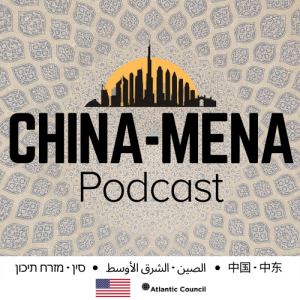
Podcast series
Listen to the latest episode of the China-MENA podcast, featuring conversations with academics, government leaders, and the policy community on China’s role in the Middle East.
Recommended reading
This podcast was funded in part by a grant from the United States Department of State. The opinions, findings, and conclusions stated herein are those of the author and do not necessarily reflect those of the United States Department of State.
Further reading
Tue, Feb 15, 2022
Sino-Iranian relations
China-MENA Podcast By
Professor Anoushrivan Ehteshami joins the China-MENA podcast to discuss China-Iran relations and the state of the bilateral relationship.
Thu, May 19, 2022
Chinese Multilateralism in MENA
China-MENA Podcast By
Dawn Murphy joins us to discuss China's approach to drawing Middle East and North African countries into Chinese-led cooperative forums for political support and influence.
Thu, Jun 16, 2022
Chinese Tech in North Africa
China-MENA Podcast By
Tin Hinane joins us to discuss Chinese Tech in North Africa, China’s attempt to dominate the digital space in North Africa via tech giants such as Huawei and Alibaba, and the Digital Silk Road.
Image: Chinese President Xi Jinping shakes hands with Saudi Arabia's Deputy Crown Prince Mohammed bin Salman during the G20 Summit in Hangzhou, Zhejiang province, China September 4, 2016. REUTERS/Damir Sagolj








